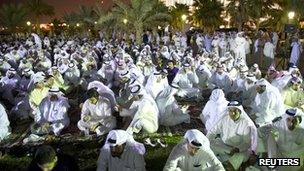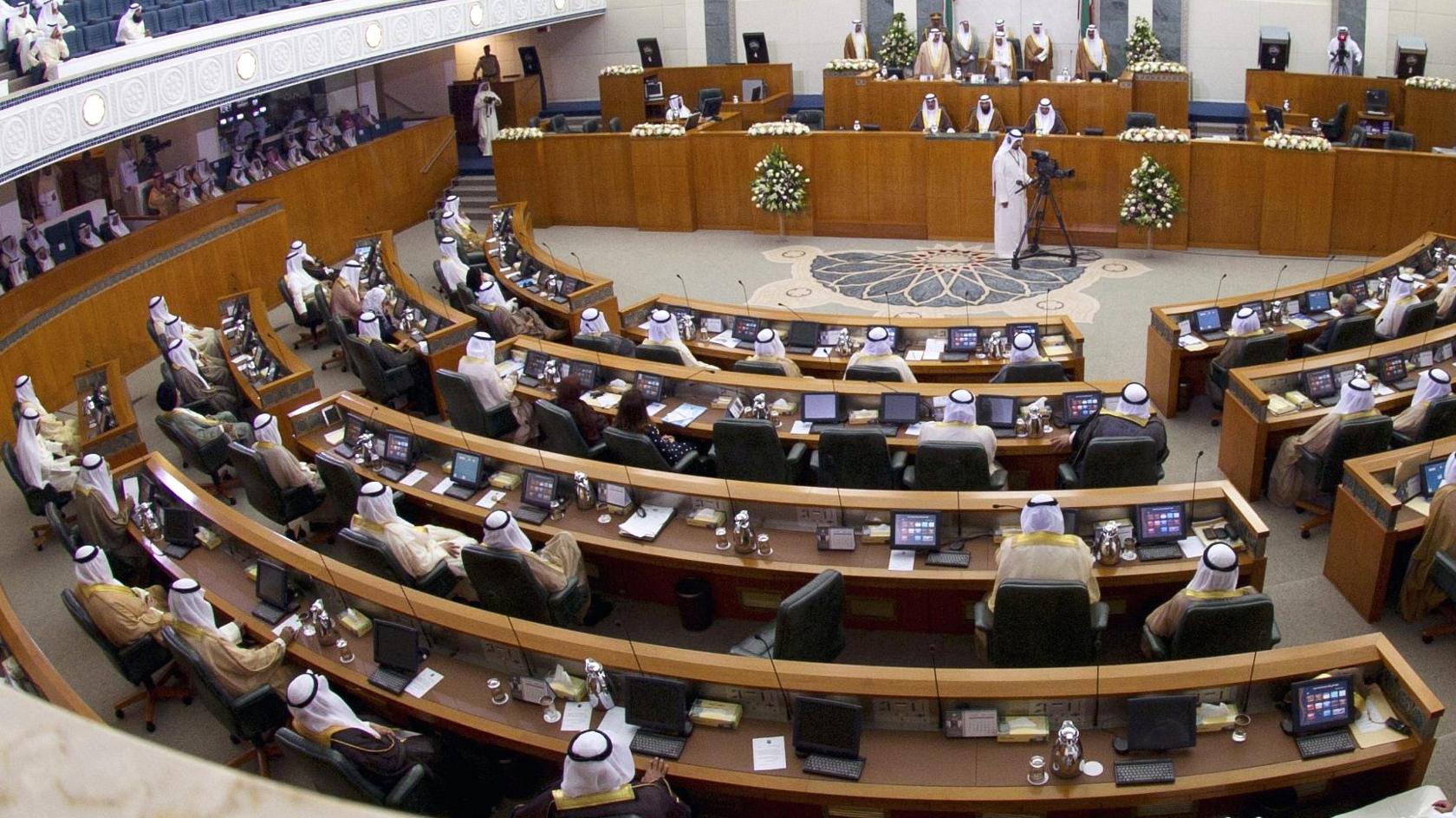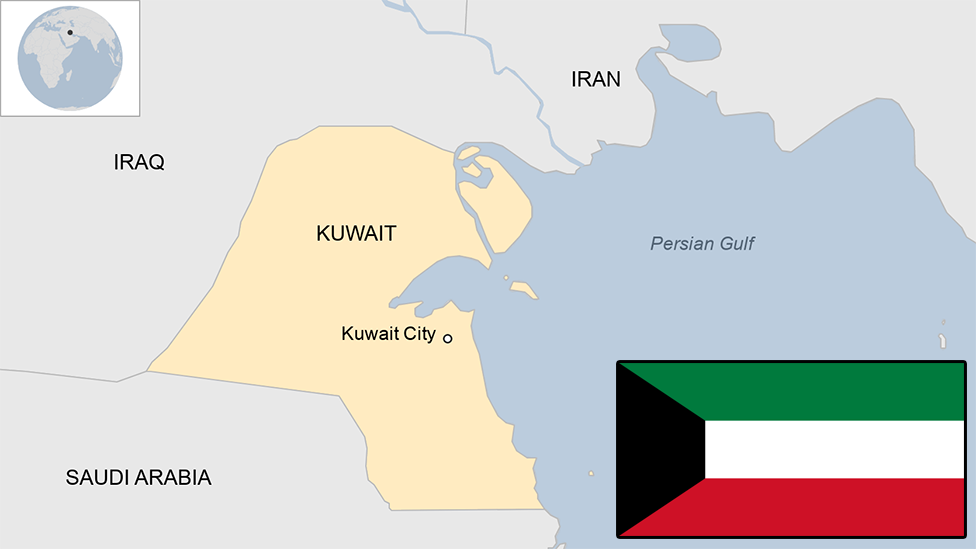Kuwait's top court rejects election law change
- Published

Thousands of opposition supporters protested outside the parliament in Kuwait City on Monday
Kuwait's highest court has rejected a government appeal aimed at changing the Gulf emirate's electoral boundaries.
The Constitutional Court upheld the 2006 electoral law, which divided the country into five constituencies.
The ruling came a day after thousands of opposition supporters held a protest outside parliament in Kuwait City.
Opponents of the law change said it would have allowed the government to redefine electoral boundaries to its advantage ahead of fresh polls.
However, the government said the reason for the court action was to safeguard the outcome of future elections from possible legal challenges.
Political turmoil
In an unprecedented ruling in June, the Constitutional Court declared illegal February's elections for the National Assembly, in which the Islamist-led opposition made significant gains, and reinstated the previous parliament.
The opposition has demanded that parliament be dissolved and fresh elections held as soon as possible.
"The constitutional ruling today means that the government should resign immediately," Islamist MP Faisal al-Mislem wrote on Twitter.
Kuwait's parliament has the most powers of any elected body in the Gulf, and opposition MPs openly criticise the ruling Sabah family. But the Sabahs retains full control over key government and executive posts.
The Emir, Sheikh Sabah al-Ahmed al-Sabah, called February's election amid a crisis over corruption allegations.
In November, the cabinet resigned shortly before former Prime Minister Sheikh Nasser al-Mohammed al-Sabah was to be asked about the alleged payment of bribes to pro-government MPs.
Protesters had stormed the parliament building the previous month when the government tried to prevent Sheikh Nasser facing questions.
- Published20 June 2012

- Published3 February 2012

- Published6 December 2011

- Published18 December 2023
